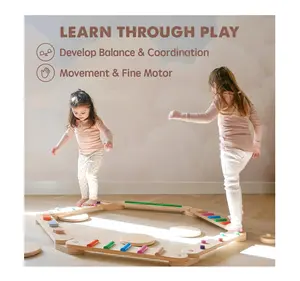Introduction to 6 Learning Skills
In today's fast-paced knowledge economy, mastering essential learning skills is pivotal for personal and professional development. The concept of "6 learning skills" encapsulates a framework that empowers individuals to adapt to challenges, enhance productivity, and thrive in various environments. These skills—critical thinking, collaboration, communication, creativity, information literacy, and flexibility—serve as vital tools for lifelong learners, equipping them to engage effectively in an ever-evolving world.
Types of 6 Learning Skills
The 6 learning skills can be categorized into two main types—cognitive and interpersonal skills:
- Cognitive Skills:
- Critical Thinking: The ability to analyze information and make informed decisions.
- Creativity: The capacity to generate innovative ideas and solutions.
- Information Literacy: The proficiency in locating, evaluating, and effectively using information.
- Interpersonal Skills:
- Collaboration: Working effectively with others to achieve common goals.
- Communication: Conveying ideas clearly and effectively across various mediums.
- Flexibility: Adapting to new situations and challenges with ease.
Applications of 6 Learning Skills
The 6 learning skills find applications across a range of contexts, enhancing individual capabilities and promoting a culture of continuous improvement:
- Education: Helps educators develop curricula that foster these essential skills among students.
- Workplace: Increases employee efficiency, innovation, and collaboration, leading to improved workplace dynamics.
- Personal Development: Encourages individuals to pursue lifelong learning through self-directed initiatives and adaptability.
- Community Engagement: Enhances participation in civic activities and volunteer work through effective communication and collaboration.
Advantages of Mastering 6 Learning Skills
Investing time in mastering the 6 learning skills offers numerous benefits that can propel both personal and professional success:
- Enhanced Problem-Solving Abilities: Critical thinking and creativity combine to provide robust solutions to complex issues.
- Improved Team Performance: Collaboration and communication ensure that group efforts are harmonious and effective.
- Greater Adaptability: Flexibility fosters resilience in the face of change, making individuals more versatile.
- Increased Employability: Employers value candidates who possess these skills, as they contribute significantly to organizational success.
- Stronger Information Consumption: Information literacy prepares individuals to navigate the vast sea of available data responsibly.













































